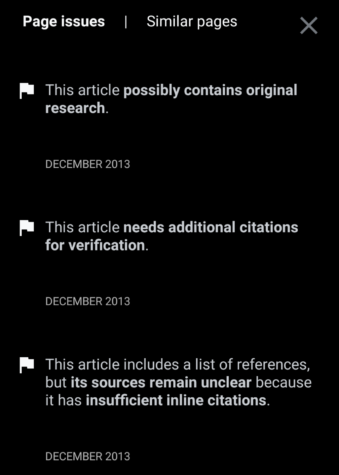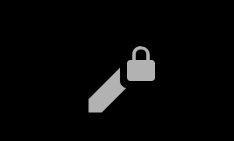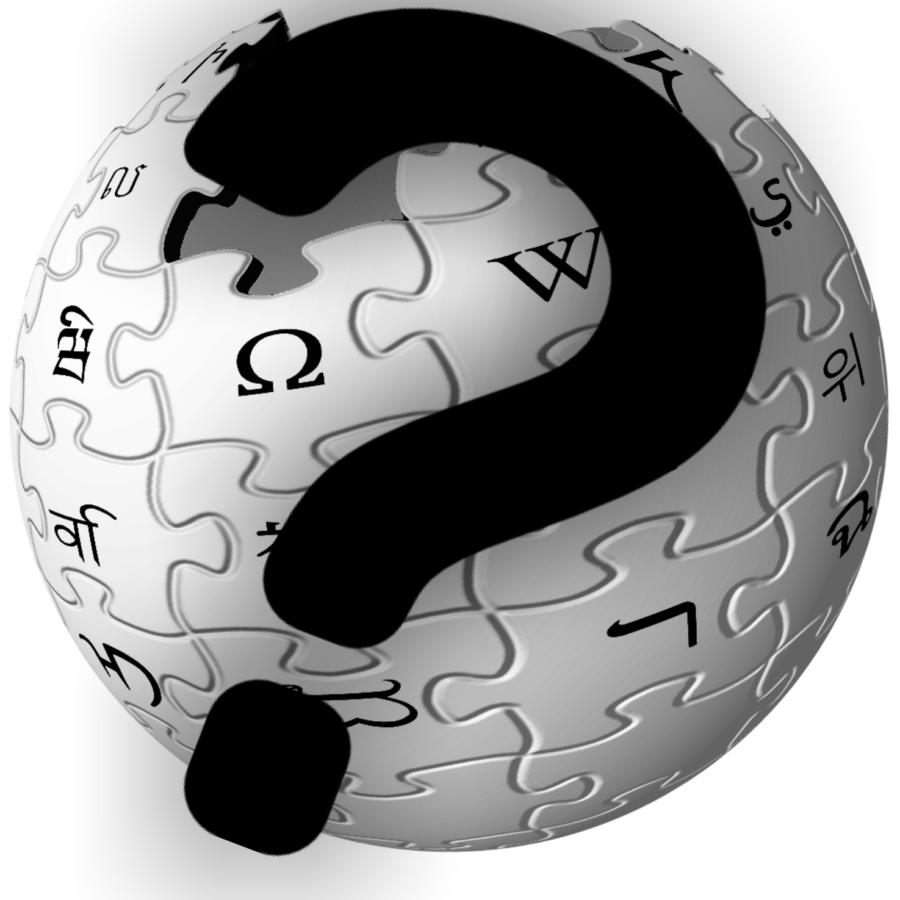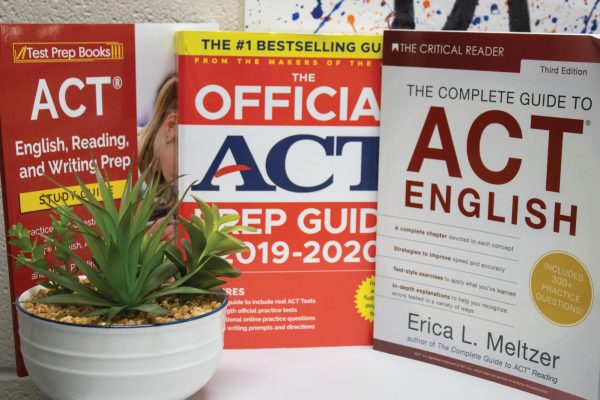Wikipedia’s Bad Rap
This user-based encyclopedia gets more flack than it should.
August 28, 2018
Information comes in many forms, and in the age of said information, the tools we use to obtain it expand further and further from textbooks and pamphlets on a daily basis. The most prominent source of information is the Internet, where millions of sites take it upon themselves to increase our knowledge of various topics that pop into our minds. For most of us, Wikipedia is a convenient, informative website that we’ve been using for quite a long time. And while it does provide us with a plethora of information on pretty much everything, it has also earned a reputation for being unreliable and untrustworthy. The question at stake is, does it deserve that reputation?
Before this question can be answered, we need to understand what Wikipedia is. The website was started in 2001, and is supported by the Wikimedia Foundation, a nonprofit organization based in San Francisco, California. Through reader donations up to $15, the organization is able to maintain the site’s staff and server costs. When it comes to articles, users can freely edit and create Wikipedia pages for free. As of now, over 29 million pages (in English) have been made, and that number continues to grow as more topics arise. This flagship model is consequently the website’s most common criticism.
Many critics of Wikipedia believe that the free user editing creates glaring flaws in the website’s reliability, as the same people who read the pages have the ability to alter them however they please. Often, entire articles are riddled with misinformation, many claim.
Thankfully, this criticism is becoming less valid, with new precautions being added to the site in order to prevent misinformation from being spread amongst the millions of pages.
1. Content Issues
Wikipedia’s vast library of informative articles include columns of notable issues with each page. For example, a page with questionable or unreliable sources will include that as a content issue. The types of issues range from insignificant to noteworthy, but all are included.

2. Locked Pages
One of the most common misconceptions about Wikipedia is that every article can be freely edited by readers. This is not at all the case, as many articles (mostly ones based on drastically changing current events or important figures) are not open to be altered by anyone but professional editors.

3. Edit Validation
Despite what you may have heard, an edit on Wikipedia isn’t as easy as clicking Submit. Once you do, page reviewers will take the time to confirm that your edit is valid. If it isn’t, it’s undone immediately. Those who add jokes or inappropriate lines to pages are suspended or often blocked from editing. This also goes for creating entire articles. If the page is filled with grammatical errors, misinformation, or unprofessionalism, it doesn’t get greenlit.
With these innovations to its user editing, you shouldn’t have to question Wikipedia’s reliability much longer. While it’s best to use alternative sources when citing facts in a work, Wikipedia has a misunderstood track record when it comes to how trustworthy they are. Content issues are noted, edits are reviewed, and many pages are permitted to experts rather than anybody. Is Wikipedia reliable? Of course.





